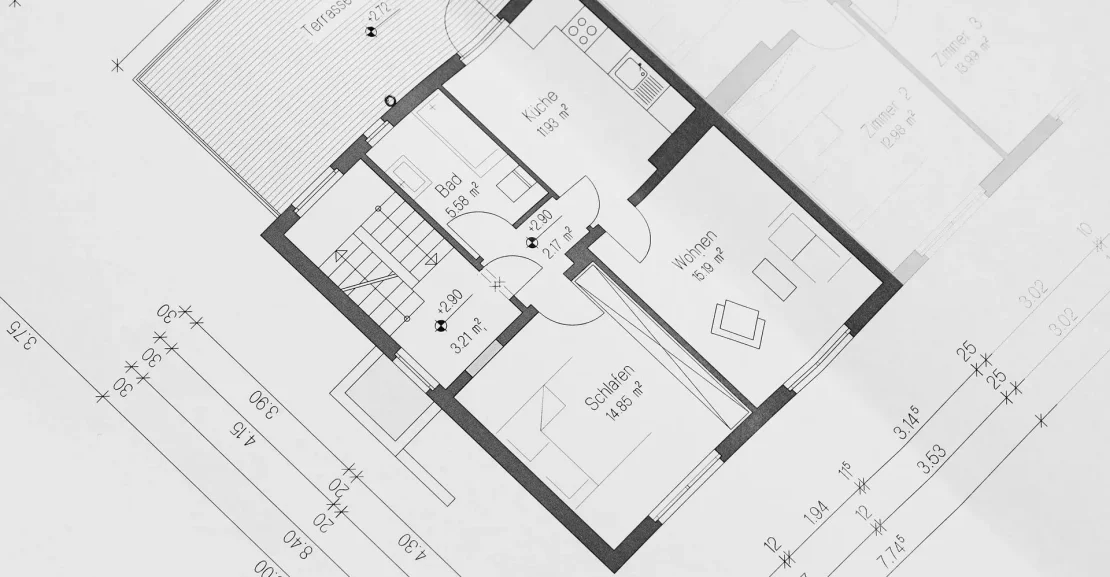What does it take to carry out land ownership verification in Nigeria? This is an important question you should seek answers to before getting land in Nigeria. Verifying land ownership is important for anyone intending to buy property in Nigeria.
With the increasing demand for real estate and land in the country, ensuring that a property title is legitimate is essential for preventing legal issues, financial losses, and conflicts.
This page offers a comprehensive overview of the processes and steps involved in verifying land ownership in Nigeria.
Land Ownership Verification in Nigeria: Why it is Important
Land transactions in Nigeria can sometimes be complicated due to the lack of centralization and standardized records. Verifying ownership protects against:
- Fraudulent sales: Some properties are sold by people without legitimate ownership or right.
- Encroachment and disputes: Verification helps prevent potential conflicts with neighbors or family members claiming ownership.
- Financial security: Ensuring that the title is clear and legitimate safeguards your investment.
Before diving into verification processes, it’s important to understand some common terms associated with land ownership in Nigeria:
- Certificate of Occupancy (C of O): This document is issued by the state government, granting the holder the right to occupy land for 99 years.
- Governor’s Consent: It is required for any subsequent transaction after the issuance of a Certificate of Occupancy. It validates any land transaction in the state.
- Deed of Assignment: This legal document shows the transfer of ownership from one party to another.
- Land Survey Plan: This outlines the exact measurement and boundaries of the land.
- Power of Attorney: A document authorizing a person to act on behalf of another in legal or business matters, often used in land transactions.
Steps to Verify Land Ownership in Nigeria
Below are land ownership verification in Nigeria steps:
1. Confirm the Land Survey Plan
The survey plan provides essential information about the property’s location, boundaries, and size. Steps to confirm the survey plan include:
- Engage a licensed surveyor to inspect the land and compare it with the survey plan.
- Cross-check with the surveyor general’s office in the relevant state, as the office maintains records of all surveyed land. Confirming this helps ensure that the property does not fall within government-designated land or encroached areas.
2. Obtain the Certificate of Occupancy (C of O)
The Certificate of Occupancy (C of O) is one of the most important documents proving land ownership. Here’s how to confirm its validity:
- Request a copy of the C of O from the property owner.
- Visit the State Land Bureau: Check with the land registry in the state where the property is located, as they have records of all C of Os. A simple search can reveal whether the C of O is legitimate and issued for that particular property.
3. Verify the Deed of Assignment
A Deed of Assignment details the transfer of ownership from the original owner to the current owner. To verify it:
- Request a copy of the deed and examine its contents, ensuring it includes accurate details like the property location, size, and seller’s information.
- Register with the Land Registry: Visit the relevant Land Registry Office in the state to check if the deed has been registered. Registered deeds provide stronger proof of ownership.
4. Confirm the Governor’s Consent
The Governor’s Consent is a crucial document for any property purchased through a secondary transaction. This step is mandatory to validate any land transaction legally.
- Verify if the Governor’s Consent has been obtained: Request the consent document from the seller.
- Visit the State Land Bureau to confirm if the consent was genuinely granted. Transactions without the Governor’s Consent can be considered invalid by Nigerian law.
5. Conduct a Search at the Land Registry
The Land Registry contains records of all registered properties. A visit to the registry office can reveal the ownership status and possible encumbrances on the property.
- Submit a formal application for a title search at the Land Registry. This process may require a small fee.
- Review the search results: You’ll be informed if there are any liens, disputes, or claims on the property. A clear record means the title is likely legitimate.
6. Obtain a Lawyer’s Assistance
Having a qualified real estate lawyer can provide an added layer of protection. A lawyer can:
- Analyze and interpret legal documents such as the Deed of Assignment, C of O, and other title documents.
- Conduct due diligence by verifying all necessary documents and searching relevant state and federal databases.
- Negotiate terms and clarify potential red flags or discrepancies, ensuring a smooth transaction.
Red Flags to Watch for During Land Verification
Several red flags could indicate issues with a property’s title or ownership:
- Missing Documents: Absence of key documents like the C of O, Deed of Assignment, or Governor’s Consent.
- Multiple Ownership Claims: If more than one party claims ownership, it’s essential to avoid such a property until the issues are legally resolved.
- Unregistered Titles: Properties with unregistered titles may face legal challenges in the future.
- Government Designated Areas: Some lands fall under government reservation areas and cannot be sold privately. Always confirm with a surveyor and the Land Bureau.
Tools and Online Resources for Land Verification in Nigeria
Some states provide online tools for land verification. These resources can simplify the verification process:
- Lagos State Electronic C of O Verification: Lagos provides an e-portal to verify the C of O status online. Visit the Lagos State Land Bureau’s website for this service.
- Federal Ministry of Works and Housing (FMWH): For lands controlled by the federal government, consult the FMWH for verification services.
- State Land Registries’ Portals: Many states offer online services to verify survey plans and title documents. Check if your state provides this option for faster verification.
Steps to Avoid Land Fraud in Nigeria
Land fraud is a prevalent issue in Nigeria, but some precautions can help protect buyers:
- Insist on Physical Verification: Never purchase a property without physically inspecting it. Some fraudsters may use fake documents or try to sell land they don’t own.
- Use Trusted Agents and Professionals: Working with a reputable real estate agent, surveyor, and lawyer can prevent potential scams.
- Avoid Cash Transactions: Make payments through traceable channels, like bank transfers, which create an audit trail.
- Get All Agreements in Writing: Ensure all aspects of the sale, including payment terms and document transfers, are in a legally binding contract.
Government Regulations Governing Land Ownership in Nigeria
Land ownership in Nigeria is primarily governed by the Land Use Act of 1978, which vests ownership of all land in the state governments. Here’s an outline of the main provisions:
- State Ownership of Land: State governors hold land in trust for the people, and individuals receive rights of occupancy instead of outright ownership.
- Allocation of Land Use: Land use is categorized for agricultural, residential, commercial, and industrial purposes, with each use having different requirements and processes for securing titles.
- Renewal and Revocation of C of O: Certificates of Occupancy are valid for 99 years but can be revoked by the government for reasons like public interest. Individuals can apply for renewals upon expiration.
READ ALSO:
- Is Proof of Ownership Renewable in Nigeria?
- What is an Affidavit of Proof of Ownership in Nigeria?
- Where Can I Get a Certificate of Ownership in Nigeria?
- Who Issues Proof of Ownership in Nigeria?
- How to Get a Proof of Ownership Certificate
Importance of Conducting Due Diligence with Traditional Family Land
In Nigeria, many lands are traditionally owned by families or communities and passed down through generations. The sale of such land requires extra caution:
- Confirm Approval from Family Heads: Ensure that family members, especially heads, consent to the sale.
- Request Family Documents: Check if there are existing documents like a family agreement or title. Some families may have documents that specify rights and boundaries.
- Conduct a Background Investigation: Check the history of the property to ensure it’s not under dispute or held as communal land.
Common Issues in Nigerian Land Transactions
Here are a few scenarios that illustrate common issues buyers face in Nigerian land transactions:
- Case of Multiple Sales: A buyer purchases land without proper verification, only to discover it was sold to several people. This is a frequent problem in fast-growing areas.
- Non-Approval from the Government: Another buyer acquires land in an area designated for government projects. They face eviction despite possessing some title documents.
- Family Disputes over Land Sales: Family lands are often sold without consensus, leading to legal disputes and buyer losses.
These cases emphasize the need for thorough verification, legal advice, and careful document review.
Consequences of Buying Land Without Proper Title Verification
Failing to verify a property title can have serious consequences, including:
- Loss of Investment: You risk losing money if ownership disputes arise or if the government repossesses the land.
- Legal Disputes: Cases involving fraud or disputed ownership can be costly and time-consuming to resolve.
- Difficulty in Resale: Selling property with questionable titles can be challenging, as buyers are increasingly cautious.
Land ownership verification is a vital step for anyone looking to purchase property in Nigeria.
By following the outlined steps—checking survey plans, verifying the Certificate of Occupancy, conducting searches at the Land Registry, and consulting with professionals—buyers can significantly reduce the risks associated with land transactions.
While Nigeria’s land ownership system may have its challenges, due diligence and informed decisions can help ensure that your property investment is safe and legitimate.



